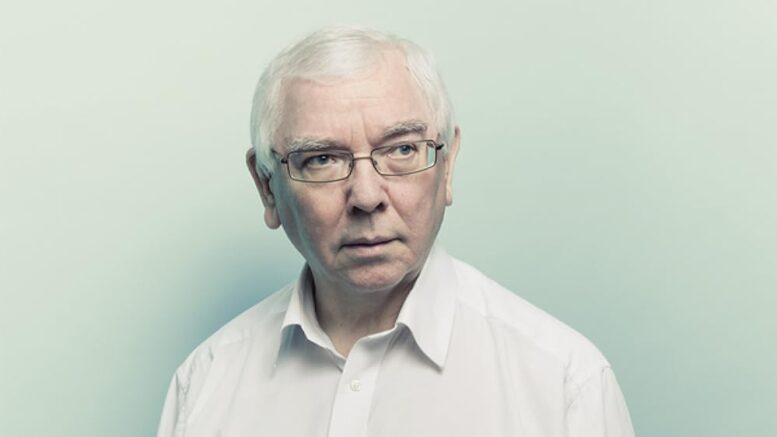Terence Davies, one of Britain’s most esteem filmmakers of the past forty-five years, has passed away at the age of 77.
The Liverpool-born director and screenwriter died peacefully at home after suffering a short illness.
Born in Kensington in 1945, Davies grew up as the youngest of ten children of working-class parents. After working ten years as a shipping office clerk and accountant, he then attended Coventry Drama School.
During his time there, he wrote the screenplay for his first autobiographical short, Children (1976). He then attended the National Film School, where he went on to direct an additional two short films; Madonna and Child (1980) and Death and Transfiguration (1983). All three shorts were later screened together at film festivals as The Terence Davies trilogy (1983).
In 1988, Davies directed his first feature-length effort, the autobiographical drama Distant Voices, Still Lives.
Based on his own upbringing, the film followed a working-class family across two decades while paying close attention to the role of popular music, cinema and pub life within his tight-knit community.
The film was a critical success and went on to land a number of major accolades, including the FIPRESCI prize at Cannes, as well as Best Director and Film of the Year at the London Film Critics Circle.
Five years later, Davies helmed another autobiographical film in The Long Day Closes (1992), and followed that up with the American-based drama The Neon Bible (1995).
After a break from features, he then kickstarted the 2000s by helming the big-screen adaptation of Edith Wharton’s novel The House of Mirth (2000).
Spearheaded by leading star Gillian Anderson, the period drama was another critical success for Davies and saw him receive the first of two BAFTA nominations for his role as producer.
He then took another long hiatus from films in order to work on two radio plays; A Walk to the Paradise Garden (2001) on BBC Radio 3, and Virginia Woolf’s The Waves (2008) on BBC Radio 4.
Davies then directed and narrated the Liverpool-based documentary Of Time and the City (2008), which was the first of three major collaborations with the Hope Street-based film company Hurricane Films.
The documentary used newsreel and old footage in order to focus on the filmmaker’s life growing up in Liverpool during the 1950s and 60.s
It went on to premiere at the 2008 Cannes Film Festival and was named as Mark Kermode’s favourite film of that year.
Additionally, producers Solon Papadopoulos and Roy Boulter were nominated for the Carl Foreman award for Most Promising Newcomer at the 2009 BAFTAs.
Davies soon returned to feature films with his adaptation of Terence Rattigan’s play The Deep Blue Sea, which centred on an affair between a judge’s wife (Rachel Weisz) and a former RAF pilot (Tom Hiddleston).
His second major project with Hurricane Films came with the Scottish-based period drama Sunset Song (2015) for which he received a BAFTA (Scotland) nomination for his producing role on the film.
One year later, the third and final collaboration was another period drama in A Quiet Passion (2016) which was another well-received effort from the versatile director.
Davies’s final two projects came in 2021 starting with the short ‘But Why?’ and then swiftly followed by his work on the factual drama Benediction, starring Jack Lowden as decorated war poet Siegfried Sassoon.
Prior to his tragic passing, he was due to direct an adaptation of Stefan Zweig’s novel The Post Office Girl.


Be the first to comment on "Terence Davies obituary: Distant Voices, Still Lives and Of Time and the City director dies aged 77"